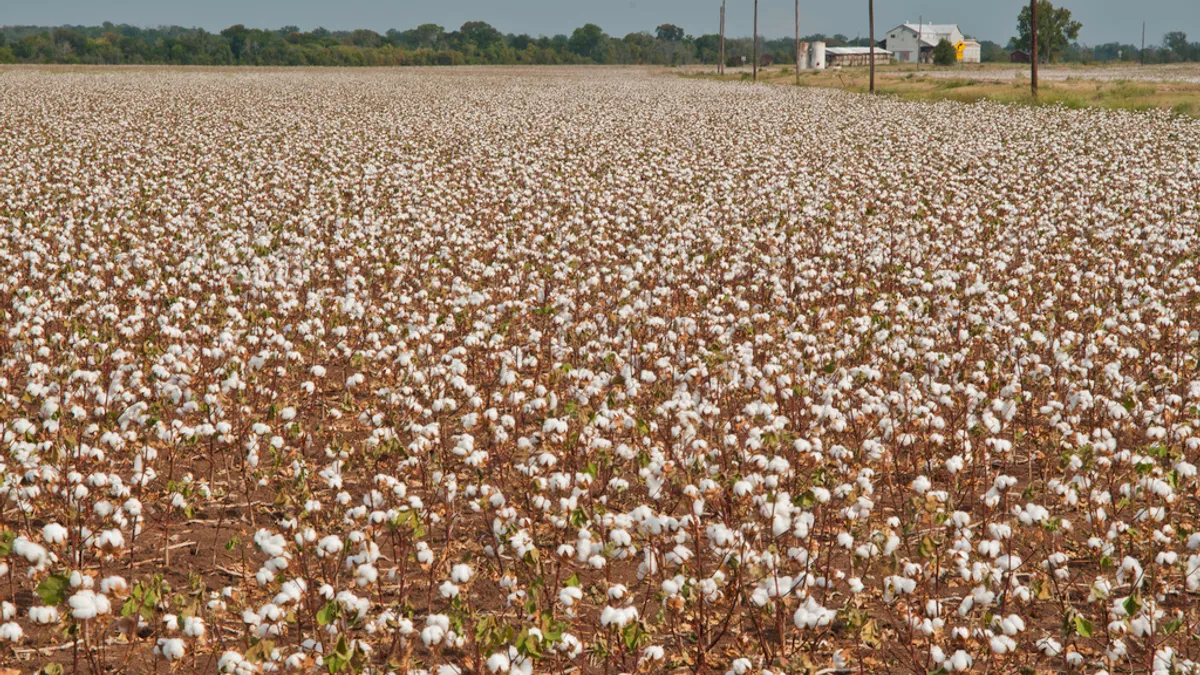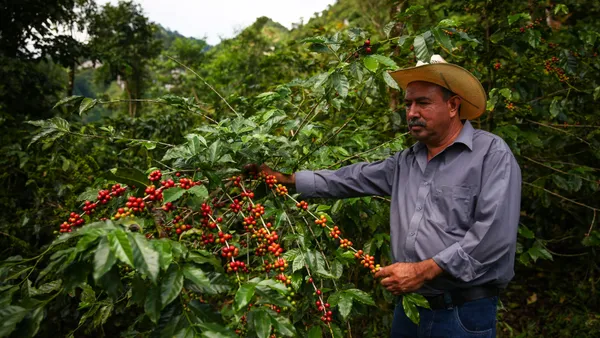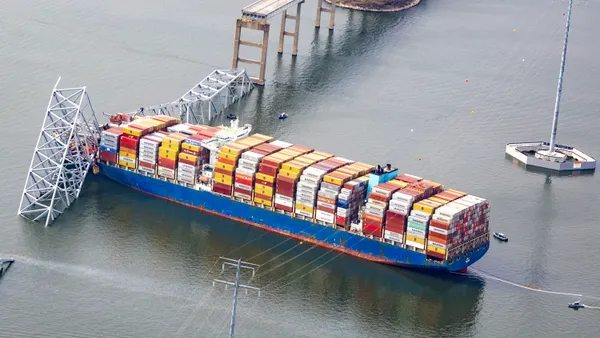Dive Brief:
- The U.S. Department of Homeland Security announced Wednesday a ban on all shipments of cotton and cotton products imported from the Xinjiang Production and Construction Corps — a leading cotton producer in China's Xinjiang region, according to U.S. Customs and Border Protection Acting Commissioner Mark A. Morgan.
- XPCC shipments are to be detained at all U.S. ports of entry, as stated in CBP's latest Withhold Release Order, based on evidence that goods were produced by forced labor. This marks the sixth enforcement action that CBP has issued against the use of forced labor in Xinjiang since September.
- "We would strongly recommend to the industry that they do significant due diligence around their supply chain to try to tease out — as CBP has done — the specific entities that are related to or used cotton out of Xinjiang," Brenda Smith, executive assistant commissioner of CBP's Office of Trade, said at Wednesday's news conference. She noted that CBP put the industry on notice a year ago when it issued a Withhold Release Order on garments made from Xinjiang.
Dive Insight:
The U.S. government has increased actions to root out and stop the use of forced labor in supply chains over the last year, especially in China. With this dedication to rid the market of goods produced by slave labor comes an added scrutiny of U.S. companies to examine their supply chains to ensure they are free and clear of any infractions. In the case of cotton, this proves to be a particularly hard task.
Last year, Xinjiang produced 84% of the total cotton output in China, according to China's National Bureau of Statistics. And that constitutes a huge portion of China's 22% share of global production, GlobalData Apparel Analyst Leonie Barrie told Supply Chain Dive in October.
That 22% share of global production has a big impact on the U.S., with over $1 billion of cotton and cotton fabrics imported from China in 2019.
Auditors conducting research on Xinjiang suppliers can find it challenging due to lack of access to the sites and the lack of visibility in this part of the supply chain. That creates difficulty ensuring their companies are in compliance with federal law.
XPCC accounts for "a massive amount" of cotton production in Xinjiang, Morgan said. It acts as a quasi-military organization in the region by detaining Uighur Muslims in internment camps and forcing them to work, DHS Acting Deputy Secretary Ken Cuccinelli said Wednesday.
China holds that the evidence of forced labor in Xinjiang is fabricated.
In September, CBP said it expected detainment orders to divert $200 million in imports from Xinjiang. Morgan said at the press conference that he thinks the total amount could now reach billions of dollars.
CBP is considering whether a blanket Withhold Release Order should be issued for the entire Xinjiang region in the future. For now, the goal is for the XPCC Withhold Release Order to act as a deterrent for others. The House of Representatives has passed legislation to explicitly ban products made by Uighur labor.















